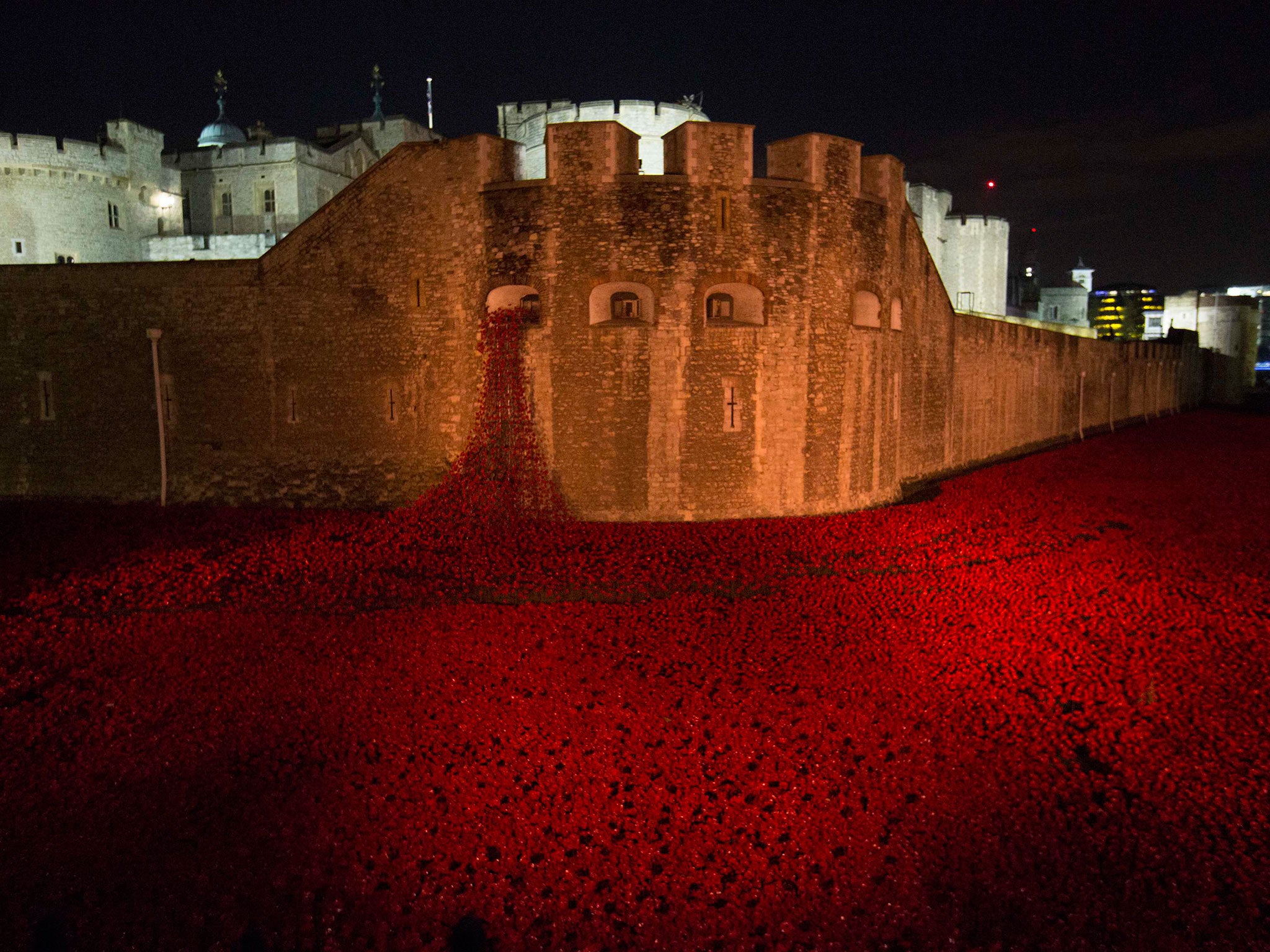The Only Way Is Ethics: This year, focus on the symbols of remembrance has reached an almost worrying pitch
If it was once a mark of respect to wear a poppy, we are now in a place where not to display one is to be actively disrespectful


As a teenager, I spent a lot of time at the Imperial War Museum airfield at Duxford, which was close to my home. I even did a few weeks of work experience there after finishing my A-levels. I was fascinated by the machinery of war but also by its ethics and the need to remember the fallen: not for the sake of glorifying battle or death in victory, but in order to understand the vitality of peace and life.
Great War veterans are no more. Those alive who served in the second global conflict are dwindling fast. There have been many wars since 1945 but they have been on a different scale. In all conflicts since the Second World War, perhaps 7,000 British service personnel have been killed. Between 1939-45 there were nigh on 400,000 military fatalities; in the First World War there were closer to 900,000.
These numbers are incomprehensible. No wonder some younger people find it difficult to get a handle on what the world wars were about, and what they meant to those who fought or to the many families who lost loved ones. And yet, at this time of remembrance, it is notable that the focus on symbols of commemoration – and in particular the poppy – is more acute than ever before.
Most newspapers publish an illustration of a poppy on their mastheads in advance of Remembrance Day. Some do so for several days. The fact that The Independent did not last week was questioned; were we making a political point?
Well, no. Some writers have certainly queried the annual wearing of poppies, wondering whether it has come to have inappropriate connotations of celebration and partisanship. That is not The Independent’s editorial line. But, equally, was the decision not to feature a poppy on the front page such a terrible thing? The Independent did, after all, dedicate a hundred articles to commemorating the Great War earlier this year; the paper could hardly be accused of failing to remember the impact of that conflict. Yet it does feel occasionally that there is a kind of poppy tyranny: if it was once a mark of respect to wear a poppy, we are now in a place where not to display one is to be actively disrespectful.
Any commentary about poppy-wearing (in favour or against) tends to elicit complaints. That there should have come to be any sort of conflict on the question seems desperately ironic.
Dangerous waters of crime reporting
While there have surely been slips, it is probably fair to say that media reporting of suicide has improved in the past five years. There is greater awareness of the potential for provoking copycat incidents – the so-called “Werther effect”, named after the wave of suicides that apparently followed Goethe’s novel The Sorrows of Young Werther in the late 18th century.
But what about the possibility that detailed media reports of a gruesome killing might inspire copycat murder? There are no specific rules on the subject, although it would seem reasonable to suggest that newspapers should not provide information that might glamorise crime.
An item on The Independent’s website last week explained the psychology of copycat murders in the light of suggestions that the deaths of two sex workers in Hong Kong bore some resemblance to the murders committed by the fictional character Patrick Bateman in American Psycho.
Imitative crime is a fascinating area for discussion. But in the case involving Rurik Jutting, who has yet to face a trial, the copycat theory may be entirely wrong. Since mimics beget mimics, to raise it as a firm possibility might itself be hazardous.
Will Gore is Deputy Managing Editor of The Independent, i, Independent on Sunday and the Evening Standard
Twitter: @willjgore


Join our commenting forum
Join thought-provoking conversations, follow other Independent readers and see their replies